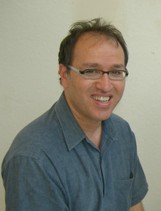Receive Our Newsletter
For news of readings, events and new titles.

On an 8-lane stretch of highway with traffic alongside us streaming at about 70 miles an hour, Adonis looked around and ahead then said, “When the oil goes, all of this will be gone.” It was one of many moments in which the visionary poet was in action. The image haunts me sometimes when I drive the wide highways of Southeast Michigan months after the poet’s visit on which we also traveled to other parts of the U.S.
Adonis’s poetry, early and late, is full of powerful, often violent visions, though one cannot say that he necessarily projects a dark vision of humanity. The poet is simply alert, he has powerful faculties and he has to let them speak to him, unimpacted by the dissonance of others’ views or any consensus of opinion. Among the many joys of being on the road with Adonis last year was to be in the company of such a lively mind whose awareness triggers not only responses but responsibilities.
Over the decades Adonis must have trained his senses to look for what surprises, and what others tend to ignore. This may be why his images and metaphors are so startling and unique, as if in the mode of a sculptor who takes a hunch and builds on it with great care and thought.
In his social interactions, Adonis seems to feel that what people see can be an extension of his faculties. Many times I saw him engrossed in head to head conversations with young poets and writers. The subjects varied, and Adonis did little talking as his interlocutor relayed what he knew.
At one gathering I watched Adonis listen patiently as a throng of Arab professionals, like a classroom of young overachievers, tried to impress him with their knowledge of Arab poetry and culture. They went on like this for at least two hours until they tired themselves. Once Adonis noticed they were done, he began a wonderful discourse about his childhood in Qassabin and his university years in Damascus. Adonis spoke in vivid detail about the people who helped him reach Shukri al-Qawatli, Syria’s president who was so impressed with the young poet that he offered him a scholarship. He spoke about his interaction with Georges Saadeh, head of the Syrian Nationalist Party, who was very supportive of him as a university student and party recruit.
The talk widened from personal memories to encompass facets of Arab culture where clearly Adonis had no one to contend with him. Adonis’s criticism of the oppressive role religion was unsparing. A woman in the group became incensed and visibly uncomfortable by both by what the poet was saying and her inability to refute it even as he welcomed her interruptions.
On that evening and on other occasions of speaking to audiences, Adonis shocked his listeners and also made them nod with approval. People simply could not stop listening to him. He was fully himself, impeccably gracious and considerate, but willing to shred any inconsistencies people presented to him.
Heated dialogues are ordinary happenings in Adonis’s life as a public intellectual. I am sure they wear him out though he genuinely craves dialogue. Once, as I described an event to him, he replied, “Are we just going to read poetry to those people?” Perhaps poetry does wear him out, for in truth only a conceited poet thinks that people are dying to hear him.
Of course, people did line up to see Adonis to speak to him, to have him sign his books. The part he enjoyed most was dialogue. He did crave new conversations, new poetry, new art. He commented on beautiful faces, paintings, clothes, and even cowboy boots. Instinct and experience have taught him to dismiss many of the pretenses to newness he hears of. But he’s always alert and latches to any idea that inspires him.
Among the many notions Adonis undermines is the stereotype of the poet as a spaced-out romantic figure lost in the fog of his imagination, etc. Adonis is always on time. A lover of wine, he is enhanced and slightly more buoyant when we shared a glass, but not less focused. He does not drop projects or appointments. He organizes years ahead, and remembers exactly what he had promised. Practical and useful as such attentiveness is, it began to seem to me as a kind of philosophy, even a kind of politics where respect for one’s time and commitments broadens to a respect for other humans, the short spans they exist, and the earth they inhabit.
It is perhaps fitting then that after translating Adonis’s poetry, he and I would take to the road to expand what had been a lyrical friendship into some epic territory. Surely, I have gained a series of fond memories such as the many long and wonderfully joyous conversations Adonis had with my 3-year old daughter. But more importantly, I believe I was given some access to a way of mapping time, and to a kind of poetics too, where art negotiates aspirations and reality, and where the body is always at the cusp of an idea. For that no thanks are ever sufficient, especially as the gift is bound to radiate as long as I live.
This article is a selection from Banipal 41 – Celebrating Adonis (Summer 2011)
On Friday 9 November 2018 Adonis gave the 3rd Annual Lecture of the Saif Ghobash Banipal Prize for Arabic Literary Translation. at the British Library on "Translation: a second act of creation?